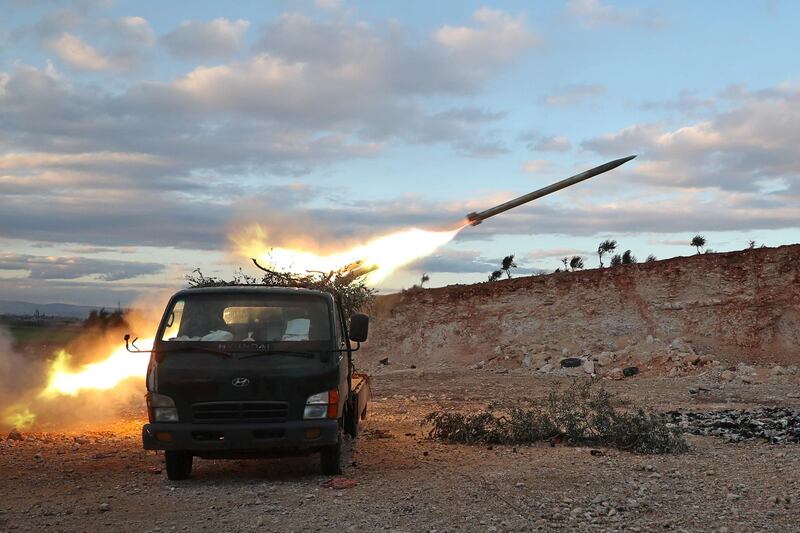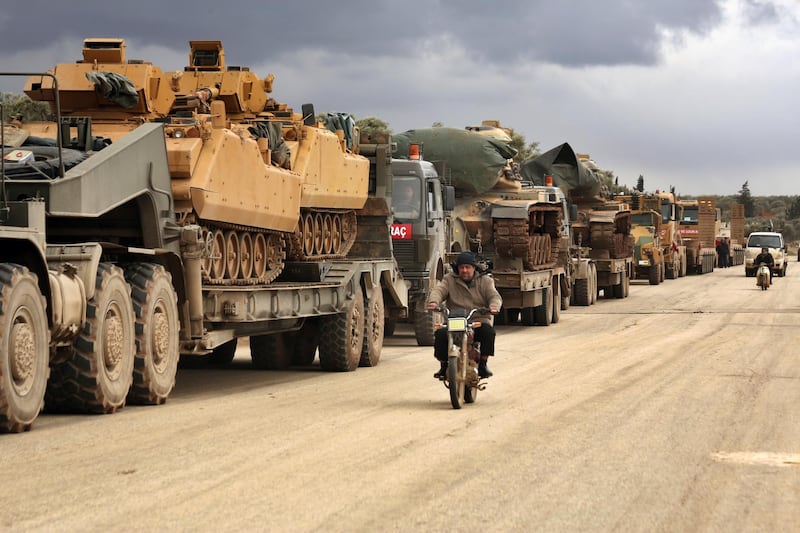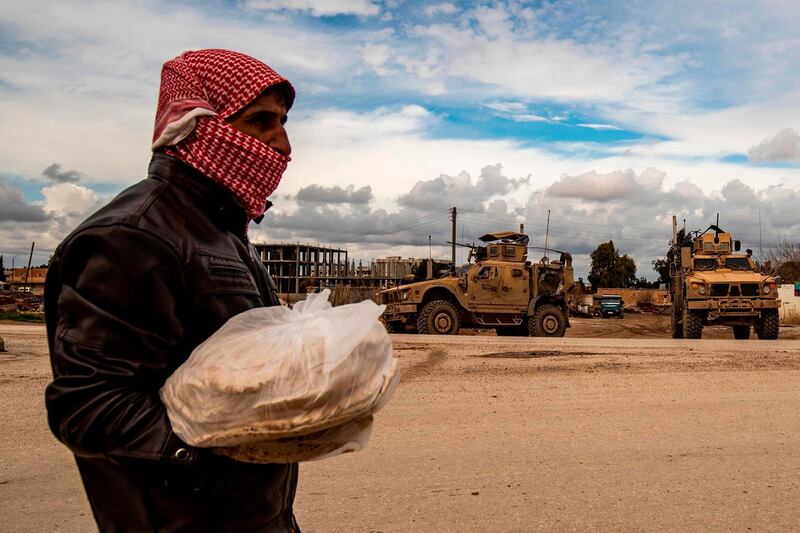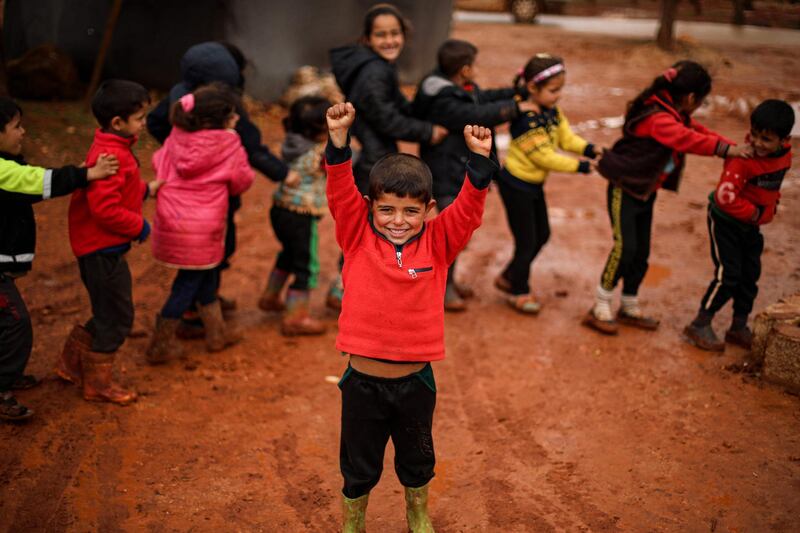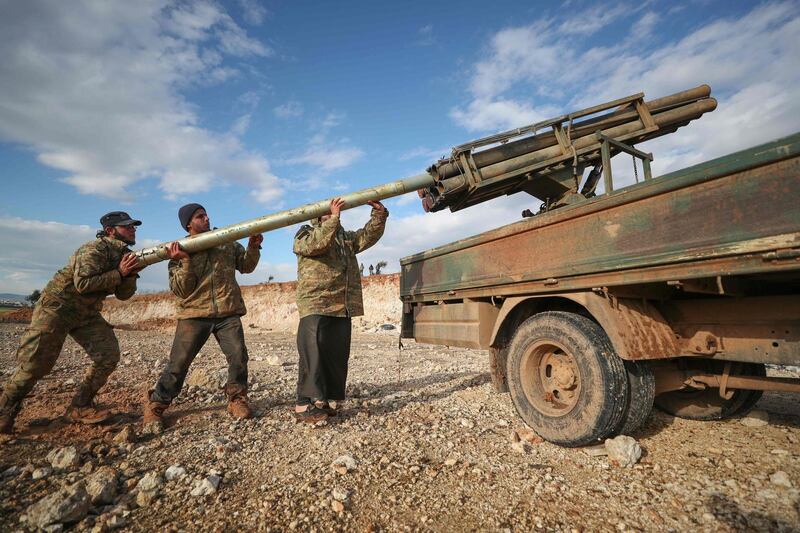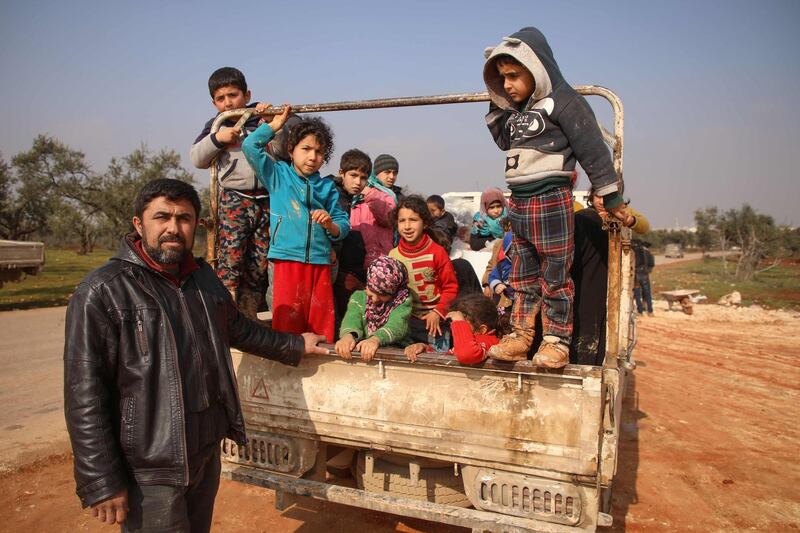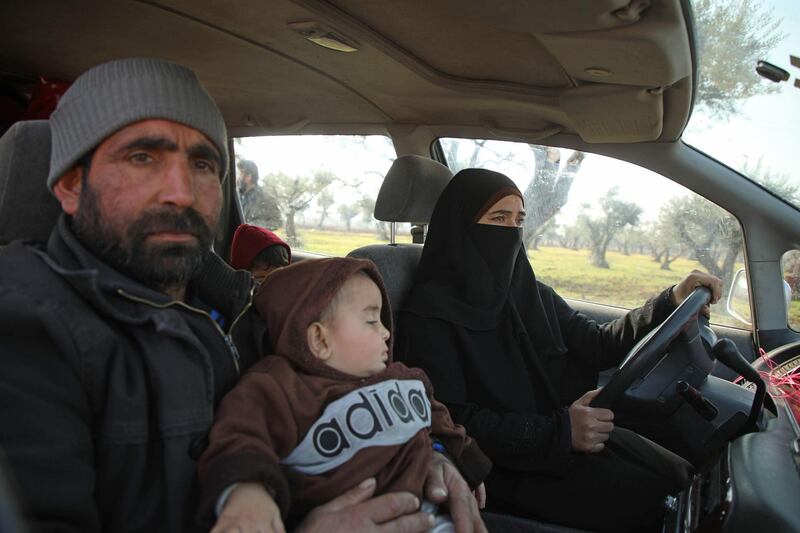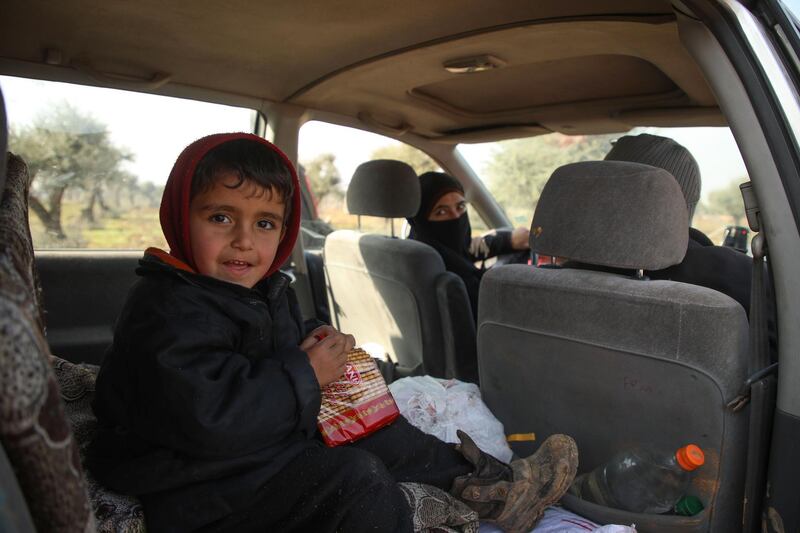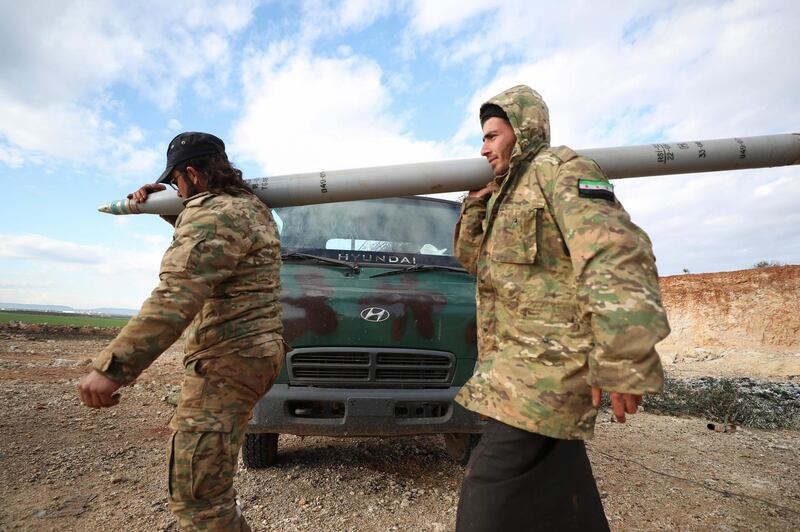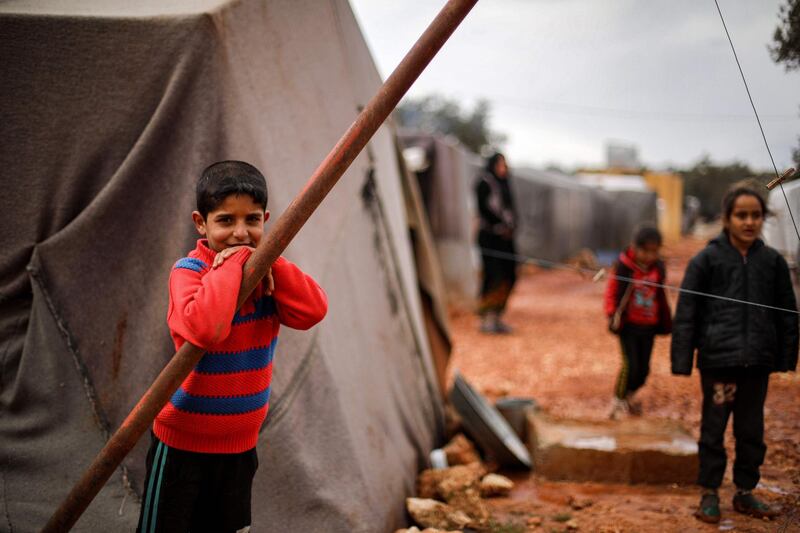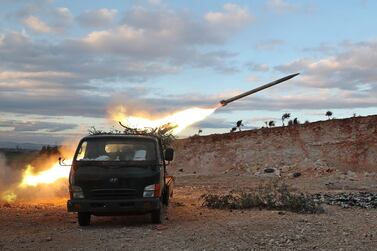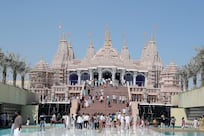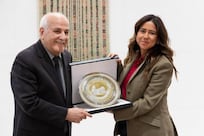Syria vowed on Sunday to keep up its military campaign in Idlib as Turkey said all options were on the table to protect its outposts in the last bastion of armed opposition to President Bashar Al Assad's rule.
The Syrian military said it had recaptured more than 600 square kilometres of territory so far, including dozens of towns and villages in recent days, as it presses its offensive to seize control of the last rebel-held areas in Idlib and the neighbouring Aleppo.
Military spokesman Gen Ali Mayhoub said government forces advancing from around Aleppo’s southern countryside had linked up with those coming from eastern Idlib.
Efforts to back the armed opposition “will not succeed in preventing the fast collapse” of the rebel groups, Gen Mahyoub said. Turkey supports some of the rebel forces.
The government advance has encircled several Turkish military observation outposts set up under a 2018 ceasefire agreement between Turkey and Russia, an ally of Mr Al Assad.
Eight Turkish military personnel were killed in shelling by government forces last week, prompting Turkey to launch retaliatory strikes and send more troops and weaponry into Idlib.
"There was a serious troop and military equipment support sent to Syria’s Idlib region in recent weeks," a senior Turkish official told Reuters.
Three hundred vehicles entered Idlib on Saturday, bringing the total to about 1,000 this month, he said.
He declined to say exactly how many new troops had been sent but called it a "notable amount".
"The observation points have been fully reinforced," the official said. "The Idlib front has been strengthened."
The Syrian Observatory for Human Rights said 1,240 Turkish military vehicles and 5,000 soldiers crossed into Idlib in the past week.
"The regime has been violating all agreements and accords," the Turkish official said. "We are prepared for any event. Of course, all options are on the table."
The 2018 agreement between Russia and Turkey allayed international fears of a humanitarian disaster in the Idlib region, the population of which had risen to more than 3 million with the influx of civilians and fighters displaced from areas retaken by the government.
Nearly 600,000 people have fled their homes since the fighting intensified in December, many of them towards the relative safety of the Turkish border.
But there are too many for aid agencies to assist, with many families forced to live in the open in the middle of winter.
Turkey has kept its border shut, saying it cannot host more Syrian refugees after already accepting about 3.6 million since the civil war began in 2011.
Turkish President Recep Tayyip Erdogan has given Damascus until the end of the month to pull back from the outposts and has urged Russia to convince Mr Al Assad to halt his offensive.
Turkey's Defence Minister, Hulusi Akar, insisted its Idlib outposts would remain in place and said they were being supplied in co-ordination with Russia.
"Despite this, if there is any obstacle we put it clearly that we will do what's necessary," Mr Akar told the Hurriyet daily.
"We on every occasion say, 'Do not force us, otherwise our Plan B and Plan C are ready'.
"Our primary goal is to prevent migration and humanitarian tragedy. We are working to establish a ceasefire as soon as possible and stop the bloodshed."
A Russian delegation including President Vladimir Putin’s Syria envoy visited Ankara on Saturday to try to ease the tensions over Idlib.
The Turkish Foreign Ministry said more talks would be held in coming days.
For now, the government campaign appears to be aimed at securing a strategic motorway rather than seizing the entire province and the densely populated provincial capital, Idlib city.
The Observatory said government troops were only a few kilometres from seizing full control of the strategic M5 motorway.
The road links the capital Damascus with the country's north, which has for years been divided between government and opposition forces.
Government forces last week seized the town of Saraqib, which sits on the junction of the M5 and the M4 motorway leading to the Mediterranean province of Latakia, an Assad stronghold.
Meanwhile, Pope Francis called on Sunday for respect of humanitarian law in Idlib, saying reports from the province were "painful, particularly regarding the conditions of women and children, of people forced to flee from a military escalation".
"I renew my heartfelt appeal to the international community and all parties involved to use diplomatic means, dialogue and negotiations, in respect of international humanitarian law, to safeguard the lives and fate of civilians," Francis said.
Eight organisations last week called for an immediate ceasefire, describing the situation as a "humanitarian catastrophe".
